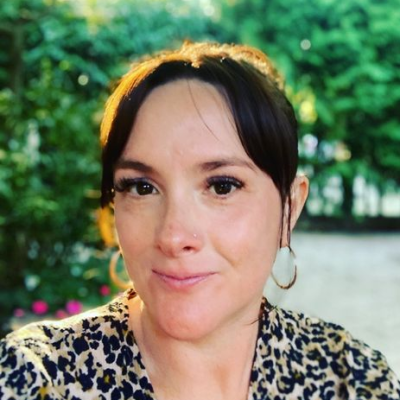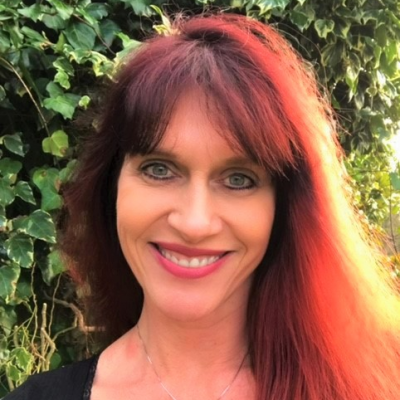Needle phobia
For some people, a fear of needles can be so great it can cause them to miss vital GP or hospital appointments and interfere with their daily life. Here, we take a look at what a phobia of needles means for those suffering from it, including the symptoms, causes, and how it can be overcome with hypnotherapy.
What is needle phobia?
Trypanophobia is the name given to an intense fear of needles. This is closely related to aichmophobia - the fear of sharp or pointed objects - but a needle phobia is specific to medical settings, such as doctor’s surgeries, hospitals, and dentists.
A needle phobia usually presents itself when having or thinking about an injection, vaccination, taking blood, or intravenous (via the vein) fluids, known as an IV. Naturally, someone with a specific fear of needles is less likely to receive medical treatment, which might cause further problems down the line. Therefore, if you suspect you or someone you know has a needle phobia, it’s important to seek treatment to prevent it from having an impact on your life, especially if you require ongoing medical treatment or are in a medical emergency.
Who can develop a needle phobia?
Anyone can develop a needle phobia at any age; perhaps you'd never previously been fearful, but your last experience was traumatic. The phobia is, however, most common in children, with about 40% of under 12s suffering from the extreme fear of needles. Whilst most people grow out of it in adulthood, studies have shown that one in 10 adults still suffer from trypanophobia.
What causes needle phobia?
A fear of needles is most commonly caused by a previously negative or traumatic experience. It normally starts following the vaccines that we're given as babies and toddlers, including MenB and MenC, HPV, and MMR. Children, therefore, quickly begin to associate needles with pain, which leads them to become fearful.
Trypanophobia is also very common in those with parents or loved ones with the fear, as children often learn these avoidance behaviours and reactions from those around them. It’s also thought that those with related phobias, such as mysophobia (the fear of germs) and health anxiety are more likely to develop a needle phobia at some point in their life.
Other reasons for developing a needle phobia include:
- having a hypersensitivity to pain
- a fear of being restrained and unable to escape (usually stemming from baby and toddler injections)
- learning about negative experiences with or around needles
- fainting when seeing needles, during or post-injection - also called vasovagal syncope
Learn about the 8 ways to stimulate your vagus nerve to relieve anxiety on Happiful.
Symptoms of needle phobia
When faced with needles, someone with an intense fear will likely experience symptoms closely related to anxiety. These symptoms tend to start out as emotional but, in severe cases, the person can display physical signs of distress, escalating to a panic attack.
Emotional symptoms of a needle phobia include:
- feeling the need to avoid or escape medical environments
- experiencing violent thoughts
- intense anxiety and stress when confronted with needles
- insomnia
These can progress into physical symptoms such as:
- dizziness
- light-headedness
- fainting
- high blood pressure
- racing heart or heart palpitations
- nausea and vomiting
- panic attacks
How is needle phobia diagnosed?
A specific fear of needles often leads to sufferers avoiding medical treatment. Contrary to this, it’s important that you try to get a diagnosis from a GP or a mental health care specialist if you suspect you have a needle phobia. This will allow you to better understand your anxiety around needles and take the necessary steps to treat it.
Trypanophobia is usually diagnosed with an assessment. Firstly, your doctor will want to rule out any physical issues that could be causing your symptoms. They will then evaluate the symptoms and behaviours you experience around needles. To be diagnosed with trypanophobia, the GP will review your behaviours against the DSM - 5 Criteria for Specific Phobias.
How can hypnotherapy help with needle phobia?
One effective method to treat, or significantly reduce, a phobia of needles is hypnotherapy. This works by helping an individual to detach themselves from their emotions and fears surrounding needles, leaving them feeling more in control of the situation.
One of the major benefits of hypnotherapy is the ability to disassociate the person from the overwhelming fear. This means that, effectively, hypnotherapy can help you detach from the emotion of fear in situations where it is not necessary.
- Biodun Ogunyemi (Certified Master Hypnotherapist ANLP, BNLP, SNLP, C.H, Dip.Hyp), 'How hypnotherapy can help you overcome needle phobia.'
Once a hypnotherapist has met with you and can understand why you might be experiencing a needle phobia, a therapy plan can be put in place. The hypnotherapist will work with you to help you begin to face your fears in a safe space. They may also teach you self-hypnosis techniques that you can use at home and in medical settings to prevent or calm your symptoms.
In this recording, hypnotherapist Natasha Crowe (Ad Dip CP, Dip Hyp CS MNCS) takes us through a self-hypnosis session to calm fears around needles.
Finding a profesisonal
You can use our advanced search, to find a hypnotherapist best suited to you.
Take the time to read through our member’s profiles so you can find someone you feel comfortable with. By being here, you’re already taking the first step towards tackling your fear. Know that you are not alone and you can take control.
Self-help techniques
If you’re suffering from needle phobia, it’s important to act on it so that you don’t miss receiving medical treatment.
There are things you can try if you find yourself in an uncomfortable situation involving needles. Though they might not cure your phobia, they can make the experience a little easier:
- Tell the person giving you the injection you have a phobia - they will offer you comfort and support throughout the whole process.
- Bring someone with you to your appointment - having someone close to you during your appointment may help you feel more relaxed and offer you a distraction.
- Try to focus your attention elsewhere - don’t look at the needle; instead, you could focus on a poster on the wall, wiggle your toes or have a chat with someone in the room.
- If you have previously fainted or felt dizzy following an injection, lie down beforehand.
- If you’re sensitive to pain, try to relax your injection site (most commonly the upper arm). Tensing the muscle is what leads to increased pain following injections.
- Practice deep breathing exercises to calm the body and mind, and decrease anxiety.
Further reading








Find a hypnotherapist dealing with needle phobia
All therapists are verified professionals


